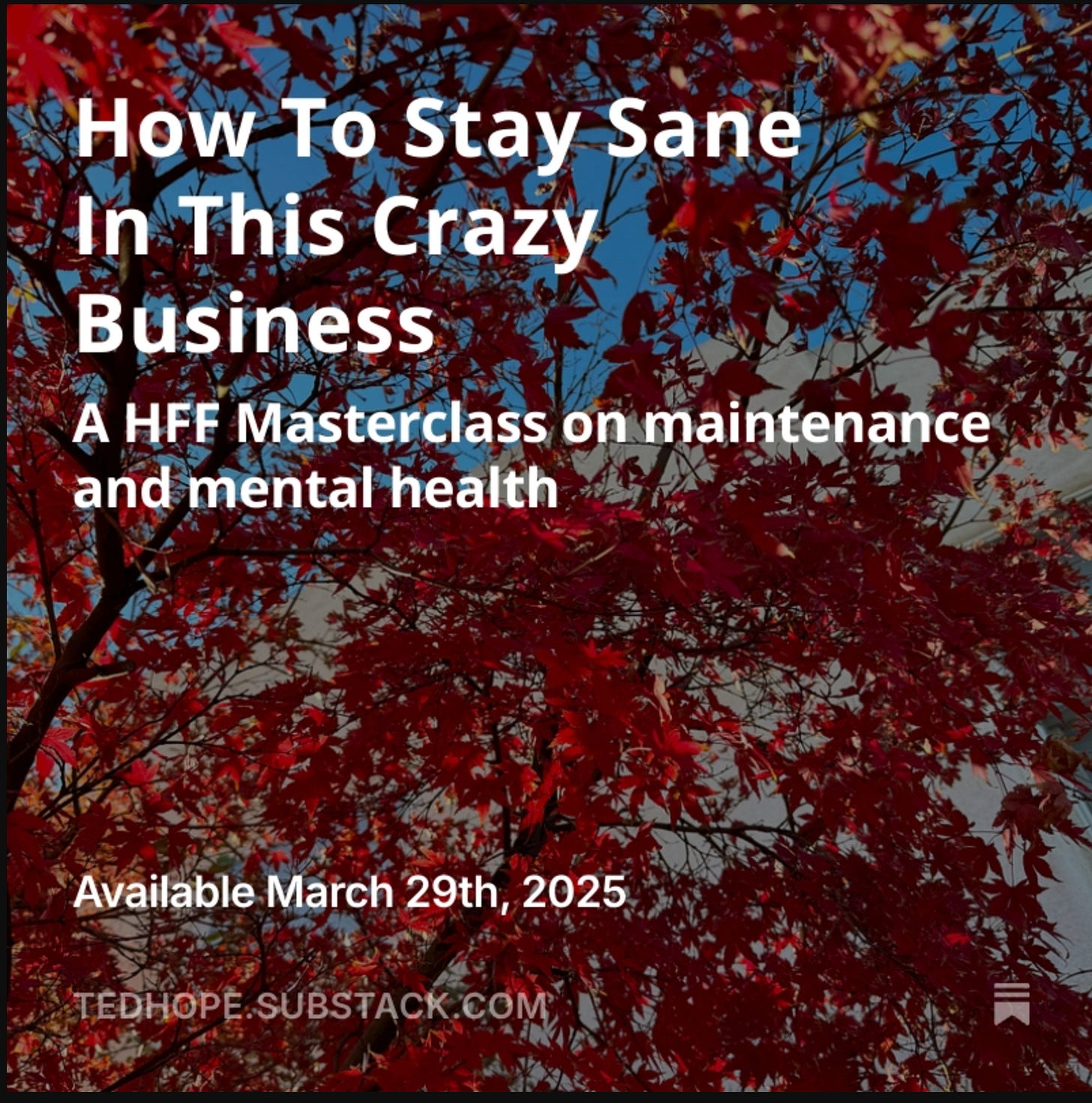What to do when bad shit happens
The art and business of cinema requires recognizing that disaster is inevitable.
For a long time now, I’ve looked at the job of producing as one of engineering serendipity. How do I construct things so that we occasionally grasp that thing that we otherwise could not reach? The positive one. The good thing. You can do that. We can do that together, particularly if we set such a plan from the start.
Once you’ve helped make some sort of magic occur, and you see you can do it with something close to regularity, have you mastered the science of cinema alchemy? Is there anything more to do? Obviously, yes. A shit ton in fact.
There are clear inflection points where work can improve, and you just need to have the clarity and rigor to be able to elevate things at that precise time. EZPZ. Ha!
It certainly helps to have a team of people that are similarly motivated. Somewhat surprisingly though, those that thwart some serendipitous action are often those that claim to be most motivated for it. It takes more than desire to have the cinema gods smile on our puny efforts. We need humility, generosity, confidence, and vulnerability. It is not an easy cocktail to concoct, let alone with enough to share. Such magic is a collaborative activity, and good collaboration across the board is still a rare occurrence in our field.
The rub of course is that making such magic happen not our only job. We have a thousand hats to wear, and we are not just tasked to make things better --- but hell, wouldn’t that be nice? If only. Maybe one day.
If the job requires thousands of decisions daily, you know you can’t have all the answers. And if each of those decisions indicates the number of points of friction that exist, you also know that everything won’t go smoothly. The volume also means you don’t have the time to treat it all with the attention and compassion you know each situation warrants. There are not just band-aids that must be yanked, some of them reside in the hairy patch.
This is the constant state I’d like us to consider today: the inevitability of total f’n disaster. I’ve been there. You too? Can we turn this into some sort of gift? A blessing? Or at least not the sort of thing that makes us collapse or shut down?
I think some of the appeal I find in concepts like “Wabi-sabi” and “kintsugi” is not just the fragility of all things but also recognizing the beauty in both that fragility and the repair required after. We make something new when the inevitable breaking occurs. Embracing the impermanence or the collapse allows us to also see opportunity in it.
When we are relying on so many people to get the job done, we know that not all will rise to the occasion. Things will go wrong. We can count on it. Being prepared to respond to it, is part of both the work and the art. Sometimes the best approach is also not to try to fix it. Perhaps the reason it broke, is that we could not absorb the pressure we were putting on it. The structure was wrong. The human error is indication of the need for a different direction. That recognition holds beauty too.
Reducing both the emotional impact, the frustration, and the disappointment that occurs when our plans or hopes are crushed or denied, helps us move forward without the accompanying distractions. Do we even need to question – at least in the moment – whether this could have been prevented? Maybe not. Going to “The Why” is many an individual’s first reaction; it can infect the whole group — whereas perhaps capturing the energy that this has occurred and advancing in another direction could be a more productive choice.
Early on I found a type of peace in chaotic environments. I found they gave me a mission. I could bring peace. There was a period where I sort of even sought them out as they gave me that feeling of purpose. I developed a bit of a pattern recognition and could see such situations perhaps earlier than most. Recognizing the common characteristics became a bit like a puzzle game, and I realized that to advance to the next level, I also needed to have solutions and strategies to deploy. Once I knew I had such tactics at my ready, I also could recognize I could often circumvent the gnarly scenarios, and the playing fields beyond became a new enticement. Preparation became the logical thing to do for as much as humanly possible.
Keep reading with a 7-day free trial
Subscribe to Hope For Film to keep reading this post and get 7 days of free access to the full post archives.



